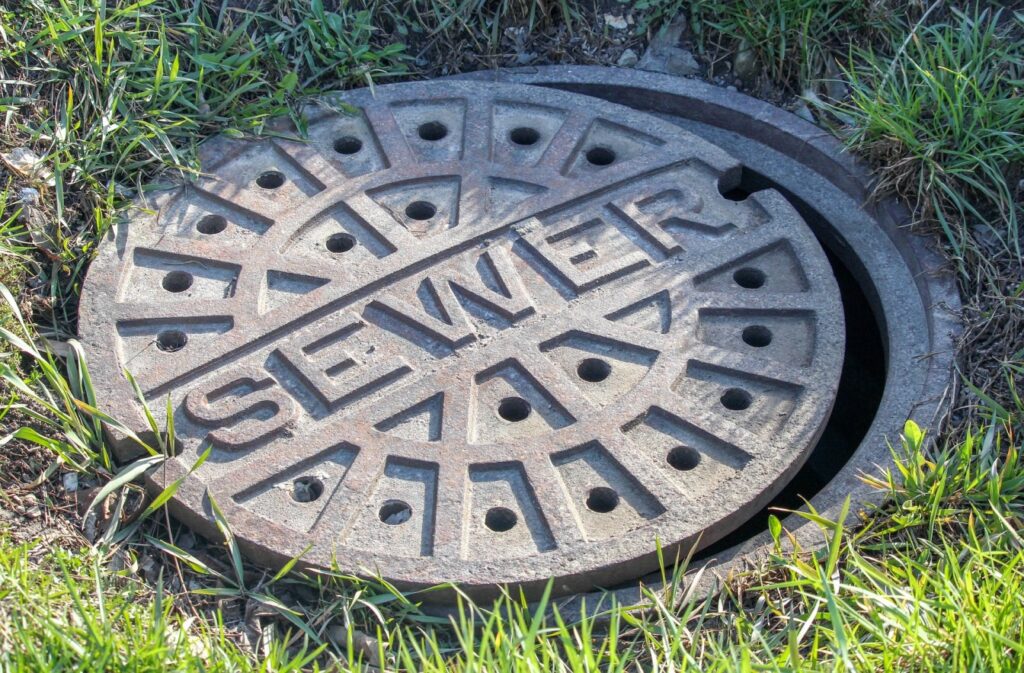The Importance of Regular Sewer Line Inspections
Regular sewer line inspections are crucial for maintaining a healthy, functional plumbing system in your home. Your sewer lines are the lifelines of your plumbing system, responsible for carrying wastewater away from your home to the municipal sewer system or septic tank. Neglecting sewer line camera inspection can lead to severe and costly issues, including blockages, leaks, and even structural damage to your property. Read why sewer line inspections are essential, how they contribute to effective sewer maintenance, and how they help prevent sewer problems. We’ll also provide practical tips for home sewer care and answer some frequently asked questions related to plumbing inspections.
Why Sewer Line Inspections Are Essential
Early Detection of Potential Issues
One of the primary reasons why regular sewer pipe inspections are so important is that they allow for the early detection of potential issues. Over time, sewer lines can become damaged due to various factors, including tree root intrusion, ground shifting, or simple wear and tear. By scheduling routine sewer line cleaning and inspections, you can identify small problems before they escalate into major sewer issues. Early detection not only saves you from costly repairs but also helps maintain the overall health of your plumbing system.
Preventing Costly Repairs
Neglecting sewer line inspections can lead to severe blockages or leaks, which can result in expensive repairs. A broken sewer line can cause sewage to back up into your home, leading to extensive water damage, mold growth, and even structural issues. Regular sewer line inspections allow plumbers to catch these issues early, often before they become emergencies. This proactive approach is an integral part of sewer maintenance and can save homeowners thousands of dollars in potential repair costs.
Ensuring Proper Functionality
Another critical aspect of regular sewer line inspections is ensuring that your sewer system is functioning correctly. Blockages, leaks, and other sewer problems can disrupt the flow of wastewater, leading to slow drains, unpleasant odors, and other plumbing issues. By conducting routine plumbing inspections, you can ensure that your sewer lines are clear and functioning as they should. This contributes to a more efficient plumbing system and a healthier living environment.
The Role of Sewer Maintenance in Home Plumbing
Regular Cleaning and Maintenance
Sewer maintenance goes hand in hand with sewer line inspections. Regular cleaning and maintenance of your sewer lines help prevent blockages and other sewer problems. This includes removing debris, tree roots, and other obstructions that can cause clogs. Homeowners should consider professional sewer cleaning services as part of their routine sewer maintenance to keep their plumbing systems running smoothly.
The Importance of Professional Inspections
While there are some DIY methods for home sewer care, such as using drain cleaners or augers, professional sewer line inspections are irreplaceable. Plumbers use specialized equipment, such as video cameras, to inspect the inside of your sewer lines. This technology allows them to identify issues that may not be visible from the surface. Professional plumbing inspections provide a more thorough assessment of your sewer system, ensuring that no problems go unnoticed.
Extending the Lifespan of Your Sewer System
Regular sewer maintenance and inspections can significantly extend the lifespan of your sewer system. Just like any other part of your home, your sewer lines require regular attention and care. By investing in routine sewer line inspections and maintenance, you’re protecting your investment and ensuring that your plumbing system will continue to function efficiently for years to come.
Be Mindful of What Goes Down the Drain
One of the simplest ways to care for your sewer system is by being mindful of what you put down your drains. Avoid flushing non-degradable items such as wipes, paper towels, and feminine hygiene products. Additionally, be cautious with what you pour down your kitchen sink—grease, oils, and food scraps can accumulate and cause blockages. By practicing good habits, you can prevent many common sewer problems.
Conclusion
Regular sewer line inspections and sewer maintenance are essential for keeping your plumbing system in top shape. By staying proactive and addressing issues early, you can avoid costly repairs, ensure the longevity of your sewer system, and maintain a healthy home environment. Don’t wait until a minor issue becomes a significant problem—schedule your sewer line inspection today!
Avoid the hassle and expense of frozen pipes with our winter preparation tips. Keep your plumbing safe and functional through the coldest months. Read More
Frequently Asked Questions (FAQs)
How often should I schedule sewer line inspections?
It’s recommended to schedule sewer line inspections at least once a year. However, if you live in an older home or an area with many trees, more frequent inspections may be necessary.
What are the signs of sewer problems?
Common signs of sewer problems include slow drains, gurgling noises, unpleasant odors, and sewage backups. If you notice any of these issues, it’s essential to schedule a sewer line inspection immediately.
Can I perform sewer maintenance myself?
While there are some DIY methods for sewer maintenance, such as using drain cleaners, it’s best to leave thorough inspections and cleaning to professionals. Professional plumbers have the tools and expertise to perform comprehensive sewer line inspections and maintenance.
How can I prevent tree roots from damaging my sewer lines?
To prevent tree roots from damaging your sewer lines, consider installing root barriers and maintaining your landscaping. Regular sewer line inspections can also help detect root intrusion early, allowing for prompt action.
What should I do if I suspect a sewer line blockage?
If you suspect a sewer line blockage, contact a professional plumber for a sewer line inspection. They can identify the cause of the blockage and recommend the best course of action, whether it’s cleaning or repairing the sewer line.

